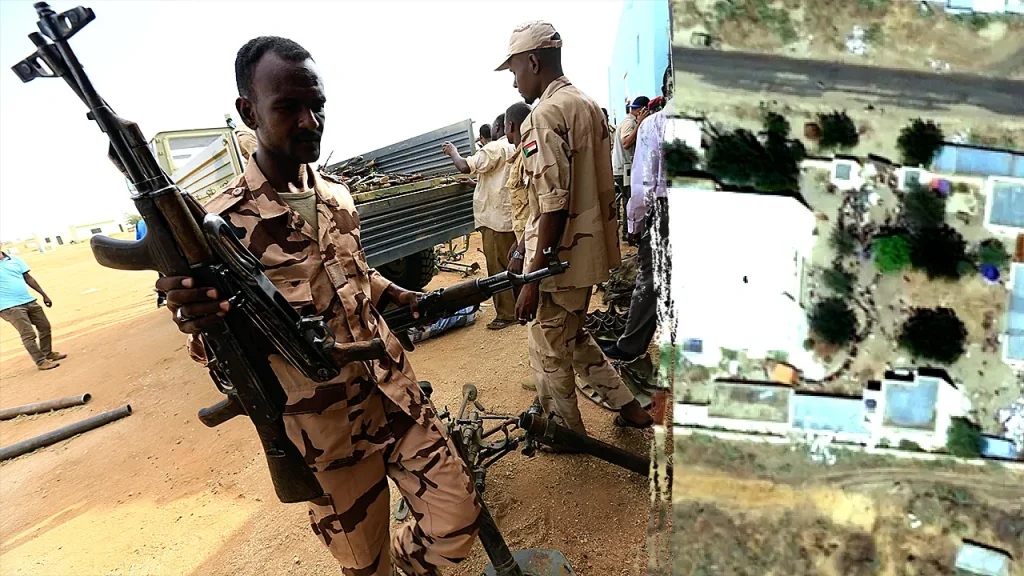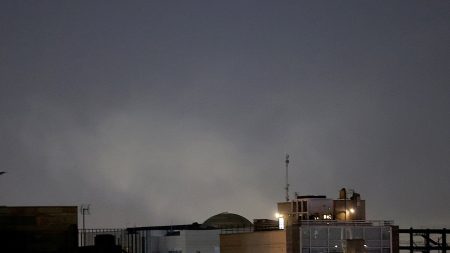A Humanitarian Crisis Unfolds: The Tragic Situation in El Fasher, Sudan
Recent satellite images have revealed a horrific scene unfolding in El Fasher, North Darfur, Sudan, where what appear to be bloodstains and bodies lie scattered across the sand. Yale University’s Humanitarian Research Lab (HRL) published these disturbing images in a report released Tuesday, providing evidence of what they describe as “systematic mass killings” by the Rapid Support Forces (RSF). This evidence emerges at a particularly sensitive moment, as ceasefire talks in Washington have stalled and RSF forces have entered El Fasher. The timing couldn’t be more critical, with the humanitarian situation deteriorating rapidly in a region already scarred by decades of conflict. Nathaniel Raymond from Yale HRL has emphasized that their team began monitoring this situation in 2023 as part of the U.S. State Department’s Sudan Conflict Observatory, consistently warning international bodies like the United Nations about the potential for atrocities should El Fasher fall.
The devastation in El Fasher represents the culmination of an 18-month siege that has now resulted in the RSF overrunning the city. Yale researchers have meticulously documented the unfolding tragedy through satellite surveillance, noting how RSF forces attempted to evade detection by concealing vehicles under trees, moving under the cover of darkness, and hiding resupply flights. The high-resolution imagery from Airbus DS analyzed by Raymond’s team shows not just bodies and bloodstains but also entire neighborhoods burned to the ground. The human toll is staggering: more than 2,000 civilians have reportedly been killed in El Fasher alone, with approximately 177,000 people trapped under blockade conditions with limited access to food, medicine, and other essential supplies. This catastrophe is part of a larger conflict that has displaced roughly 12 million people across Sudan and claimed an estimated 150,000 lives since fighting erupted in 2023, making it one of the world’s most severe humanitarian crises.
A particularly troubling aspect of this conflict involves reports of foreign support for the RSF. According to The Wall Street Journal, U.S. intelligence assessments have confirmed that the United Arab Emirates has increased weapons transfers to the RSF, including drones that Yale researchers have identified as CH-95 models. “The drone we identified was provided by the United Arab Emirates to the RSF,” Raymond stated definitively. This international dimension adds complexity to an already devastating situation and raises serious questions about foreign involvement in fueling the conflict. Sources reporting to Middle East Eye have suggested that during recent U.S.-sponsored peace talks, the UAE refused to address the critical situation in El Fasher, potentially undermining efforts to achieve a meaningful ceasefire. These allegations of foreign military support highlight how regional geopolitics can exacerbate local conflicts, often at the expense of civilian populations caught in the crossfire.
The human dimension of this tragedy cannot be overstated. The satellite imagery analyzed by Yale’s team shows “objects on the ground consistent with human bodies, about 1.3 to 2 meters [3 to 6 feet] long” – a clinical description that barely captures the horror of what these images represent. Each of these “objects” was a person with hopes, dreams, and loved ones, their lives cut short by violence. The 177,000 people currently trapped under blockade conditions face dire circumstances: limited access to food leading to malnutrition, lack of medical supplies resulting in untreated illnesses and injuries, and the constant fear of violence. These conditions echo previous humanitarian disasters in the region, reminding observers of the genocide in Darfur that began in 2003 and prompted significant international intervention. The current situation has reached such severity that Raymond and his team warned international authorities they were “approaching a genocide” well before the fall of El Fasher.
Recent diplomatic efforts have struggled to produce meaningful results despite the escalating humanitarian crisis. There had been cautious optimism last week regarding U.S.-sponsored talks, which included a ministerial-level meeting with the “Sudan Quartet.” Former President Trump had revived peace efforts for Sudan in July, potentially building on what Raymond referred to as “the legacy of Republican leadership in Darfur.” However, these diplomatic initiatives have yet to translate into concrete improvements on the ground for the people of El Fasher and surrounding regions. The inability to achieve a breakthrough in negotiations, particularly concerning the situation in El Fasher, represents a significant failure of international diplomacy at a moment when coordinated action is desperately needed. As the violence continues and humanitarian conditions deteriorate, the window for effective intervention narrows, raising the specter of even greater suffering.
Yale’s Nathaniel Raymond has called for immediate intervention at the highest levels, specifically urging direct pressure on the United Arab Emirates to cease what he characterizes as arming of the RSF. “President Trump has unique leverage to stop the killing now by calling the United Arab Emirates and pressuring them to do what the Biden administration refused to do to stop arming the RSF,” Raymond told Fox News Digital. He planned to deliver this same appeal to the Senate Foreign Relations Committee, emphasizing the urgent need for action. This call for intervention highlights both the severity of the situation and the perception that international diplomatic levers remain underutilized. As bodies continue to accumulate in El Fasher and countless civilians suffer under siege conditions, the question becomes not just whether the international community will respond, but whether that response will come quickly enough to prevent further atrocities. The satellite images showing bloodstains on sand stand as a stark reminder of what happens when diplomatic efforts fail and violence is allowed to continue unchecked.















